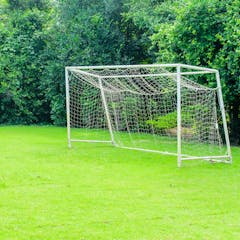
Articles on Bias
Displaying 101 - 120 of 173 articles

Are more technologically advanced prosthetics and orthotics actually better for improving health? Or do we just think they are better? And most importantly, how do we figure it out?

A decision-making process that relies on intuitive feelings rather than careful deliberation invites a host of biases that make bad decisions and disproportional consequences far more likely.

Half a century after the federal government voided Jim Crow laws, the criminal justice system still discriminates against African Americans.

Bias, stereotypes and other rules of thumb influence how people think about you – even based on your name.

New study reveals small variations in the background colour of photos in police lineups can increase misidentification.

Google’s algorithms reflect bias against members of racialized and gendered groups.

The way books are sorted at the library can be highly political, touching upon issues of race and identity.

It might be human nature to undervalue what’s chugging along doing fine while imagining there’s a mythical ‘best’ partner out there somewhere. A psychology researcher has advice.

Awareness campaigns can only go so far to stopping the stigmatization of mental health. Change occurs once we stop shaming ourselves and others for our bias.

Law enforcement officials aren’t trained in recognizing hate crimes, leaving national numbers on these attacks unreliable.

As death tolls rise from hate crimes, a psychiatrist wonders: Is it time to treat bigotry like a disease?

Recent hoax papers in humanities don’t show what they claim, but need to be taken seriously.

Expecting algorithms to perform perfectly might be asking too much of ourselves.

Women, like men, are susceptible to bias when it comes to defending those in their ‘in-group’ from accountability for sexual assault.

After a dramatic week at the ABC that sees them without a permanent managing director nor a chair, there remain serious questions about government interference and the broadcaster’s independence.

A new study suggests perceptions of how strongly people of color identify with their race can have a big impact on their job prospects and how much money they earn.

While many military veterans do well on campus, not everyone feels welcome or their views matter. Here’s what universities can do better.

The public broadcaster tries to cater to all views, but sometimes that’s a dangerous strategy.

More interracial couples are appearing on TV and in advertising. But is media exposure enough to change attitudes?

It’s a psychological quirk that when something becomes rarer, people may spot it in more places than ever. What is the ‘concept creep’ that lets context change how we categorize the world around us?
